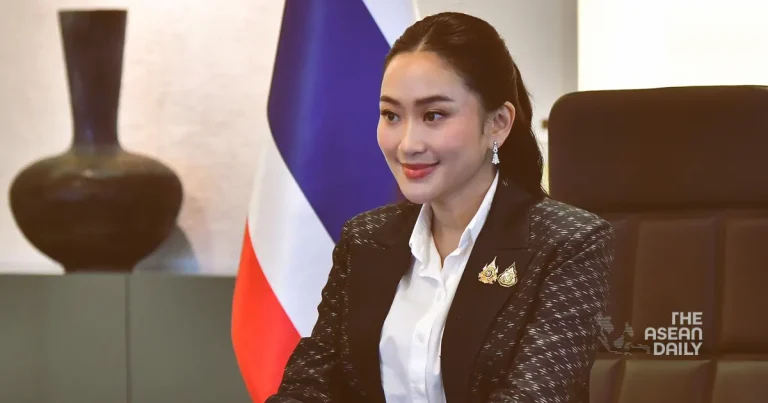5-9-2024 (BANGKOK) Thailand’s political landscape shifted on Wednesday as King Maha Vajiralongkorn officially endorsed a new Cabinet, marking the beginning of Prime Minister Paetongtarn Shinawatra’s tenure at the helm of the nation’s government.
The royal decree, published in the government gazette, confirmed the appointment of 35 ministers to serve under Paetongtarn, who assumed office on 16 August. Her ascension to power follows the ousting of her predecessor, Srettha Thavisin, who was removed by a Constitutional Court ruling that found him in violation of ethics laws.
Paetongtarn, the daughter of former Prime Minister Thaksin Shinawatra, leads the Pheu Thai party, which formed a government after last year’s general election. The party’s rise to power came after the Senate refused to endorse the prime ministerial nominee of the progressive Move Forward party, despite it winning the most seats in the poll.
The new Cabinet largely mirrors that of Srettha’s administration, with five deputy prime ministers retaining their positions. Key figures such as Interior Minister Anutin Charnvirakul and Finance Minister Pichai Chunhavajira, who also serve as deputy prime ministers, have kept their portfolios. Foreign Minister Maris Sangiampongsa also remains in his post.
However, the Cabinet’s composition reflects some significant changes in Thailand’s political alliances. The pro-military Palang Pracharath party, previously part of the ruling coalition, has been removed. This shift comes in the wake of speculation that the party and its leader, retired general Prawit Wongsuwan, were instrumental in bringing the ethics case against Srettha before the Constitutional Court.
In a surprising move, Paetongtarn’s Pheu Thai party has invited its long-time rival, the Democrat Party, to join the governing coalition. This alliance sees Democrat Party leader Chalermchai Sri-on appointed as Minister of Natural Resources, a position previously held by Prawit’s brother.
This political realignment marks a significant shift in Thailand’s political landscape. The Pheu Thai party, a successor to the Thai Rak Thai party founded by Thaksin Shinawatra, had previously disrupted the Democrats’ electoral dominance in 2001. The subsequent years saw intense political struggle between Thaksin’s supporters and opponents, playing out in street protests, courtrooms, and ballot boxes.
The new Cabinet appointments have been carefully vetted to avoid potential legal challenges, learning from Srettha’s experience. Notable changes include the replacement of Deputy Interior Minister Chada Thaised, who faced accusations of ordering murders in the early 2000s, by his daughter Sabida. Agriculture and Cooperatives Minister Thammanat Prompao, previously jailed in Australia for heroin trafficking, has also been removed from his position.
Commenting on the new Cabinet, Prinya Thaewanarumitkul, a law professor at Thailand’s Thammasat University, highlighted the potential for future challenges. “The constitution provides ample opportunities for ethics probes, and the Constitutional Court wields considerable power in interpreting it,” he noted. “Terms like ‘evidently honest’ and ‘ethical standards’ used by the court are entirely subjective.”
Prinya further warned of potential systemic issues facing the new government. “While Pheu Thai may not face significant opposition in Parliament, they could encounter problems from aggrieved parties launching petitions that put them at the mercy of the courts,” he cautioned.




